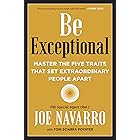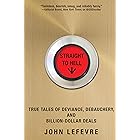| Print List Price: | $15.99 |
| Kindle Price: | $1.99 Save $14.00 (88%) |
| Sold by: | Amazon.com Services LLC |
Your Memberships & Subscriptions

Download the free Kindle app and start reading Kindle books instantly on your smartphone, tablet, or computer - no Kindle device required.
Read instantly on your browser with Kindle for Web.
Using your mobile phone camera - scan the code below and download the Kindle app.

OK
24 Days: How Two Wall Street Journal Reporters Uncovered the Lies that Destroyed Faith in Corporate America Kindle Edition
This is the story of Rebecca Smith and John R. Emshwiller, the two reporters who led the Wall Street Journal’s reporting on Enron and uncovered the unorthodox partnerships at the heart of the scandal through skill, luck, and relentless determination.
It all started in August 2001when Emshwiller was assigned to write a supposedly simple article on the unexpected resignation of Enron CEO Jeff Skilling. During his research, Emshwiller uncovered a buried reference to an off-balance-sheet partnership called LJM. Little did he know, this was the start of a fast and furious ride through the remarkable downfall of a once highly-prized company.
Written in an intense, fast paced narrative style, 24 Days tells the gripping story of the colossal collapse of what would become the world’s most notorious corporation. The reader follows along as Smith and Emshwiller continue to uncover new partnerships and self-dealing among the highest levels of Enron’s management. As they publish articles detailing their findings in the Journal, Wall Street and individual investors have a crisis of confidence and start selling Enron stock at unprecedented levels of volume. In the end—24 short days later—Enron had completely collapsed, erasing 16 years of growth and losing $19 billion in market value while watching the stock drop from $33.84 to $8.41. Not only was the company destroyed, but investors and retired employees were completely wiped out—all the while Enron executives were collecting millions of dollars.
“Gripping . . . the best of the Enron books yet.” —USA Today
- LanguageEnglish
- PublisherHarperCollins e-books
- Publication dateOctober 13, 2009
- File size1739 KB
Customers who bought this item also bought
Editorial Reviews
Review
About the Author
Rebecca Smith is a national energy reporter in the Los Angeles bureau of the Wall Street Journal. She won the Gerald Loeb Award in 1996 and 2001.
Product details
- ASIN : B000N0WTLA
- Publisher : HarperCollins e-books (October 13, 2009)
- Publication date : October 13, 2009
- Language : English
- File size : 1739 KB
- Text-to-Speech : Enabled
- Screen Reader : Supported
- Enhanced typesetting : Enabled
- X-Ray : Not Enabled
- Word Wise : Enabled
- Sticky notes : On Kindle Scribe
- Print length : 436 pages
- Best Sellers Rank: #536,394 in Kindle Store (See Top 100 in Kindle Store)
- #223 in Oil & Energy Industry (Books)
- #288 in Company Histories
- #303 in 21st Century History of the U.S.
- Customer Reviews:
About the author

Discover more of the author’s books, see similar authors, read author blogs and more
Customer reviews
Customer Reviews, including Product Star Ratings help customers to learn more about the product and decide whether it is the right product for them.
To calculate the overall star rating and percentage breakdown by star, we don’t use a simple average. Instead, our system considers things like how recent a review is and if the reviewer bought the item on Amazon. It also analyzed reviews to verify trustworthiness.
Learn more how customers reviews work on Amazon-
Top reviews
Top reviews from the United States
There was a problem filtering reviews right now. Please try again later.
Born of a merger between two electricity companies, Enron corp rose over the years to be America's dominant player in the electricity business. Turning handsome revenue margins quarter after quarter, it was America's and wall street's darling. Until the scandals struck.
In a routine SEC filing, wall street journal reporters Smith and Emshwiller discover information hinting at suspicious activity. When they go digging what they uncover is nothing short of startling.
From the now infamous LJM partnerships run by Enron's CFO and aimed at trading with Enron on a private level to boost it's reported balance sheet, to revelations of massive payoffs by top executives and accounting misdeeds by Anderseen, Enron's auditors, to help it cover up it's missteps, the two reporters shocked the world.
The book is their tell-all on how they, Smith and Emshwiller, stumbled upon the story from day one and how they uncovered information along the way. It's a story of how glorified executives swindled their shareholders, gaining massive revenue and wrecking the public's future confidence in essential institutions in the process. A story of the greed and large scale collusion that came to define wall street and American big business, it will make you reflect on integrity and the need for the good guys in the world.
I left this book not only having been intimately aquatinted with the Enron scandal from the reporters who covered it, but also challenged on the need for integrity and ethics in business. A worthy read for any entrepreneur.
I enjoyed following the reporters' quest to find things out - the "reporter as information hero" approach. It reminded me of "All the President's Men" and the days when I respected the press as the natural adversaries of bovernment / big business, which is always stonewalling. I also found the book to be much more intelligently written than many of the other books on the subject. I also agree with the reviewer who would have liked to see more discussion of What it All Means, although it's easy to see why the authors would have regarded that subject as something no one is interested in.
I agree with other reviewers who say the accounting schemes needed to be explained better. Basically, one needs to know the relationship between a company's balance sheet and cash flow statement. With that, the reader can understand how Enron tried to off-load its liabilities (from the balance sheet) and used Special Purpose Entities (such as LJM, LJM2, and the Raptors, which Enron funded) to inflate their income. The Special Purpose Entities themselves "paid" for the Enron assets with stock that Enron supplied to the Special Purpose Entities (without charging Balance sheet "Equity.") Get it? The house of cards was OK until Enron stock began falling.
The story ends in 2003, and there have been a lot of developments since then. Nevertheless, this is an exciting story.
Top reviews from other countries
The authors Rebecca Smith and John R Emshwiller sometimes working together and other times individually punctiliously take you from the resignation of COE Jeff Skilling on August 14 2001 through to October 16th when there was a surprise huge downward financial restatement of revenue for accounting years 1997-2000 necessary to correct accounting violations and then for the next 24 days you are a witness to the fast moving and tragically unavoidable unwinding and virtual destruction of a once 'darling' of the investment world. As each day passed more and more jaw-dropping revelations were revealed of the labyrinth of 'hidden' companies and partnerships that had been created to fraudulently boost Enrons profits and to dump in to them under performing assets at inflated prices resulting in wholly fictitious profits for Enron. You also learn of a number of new ventures such as Broadband and a joint venture with Blockbuster to mass sell in-home films, into which hundreds of $millions were pumped, with huge resulting losses but through a complicated and machiavellian maze of off-sheet entities enabled Enron to declare profits when losses should have been recorded.
Enron was able to get away for a long time with these highly improper accounting tactics with the compliance of the outside auditors, the now and not surprisingly defunct and disgraced Arthur Andersen. '24 Days' concludes that Arthur Andersen was so single-mindedly devoted to satisfying a narrow interpretation of the accounting rules that they had completely lost sight of the spirit of honest conduct that was supposed to illuminate and inform their work as certified accountants and that Arthur Andersen was committed to getting the client wherever it intended to go in order retain the very substantial auditing and consulting fees they were paid.
There were many Enron employees who knowingly or otherwise engineered or participated in this gigantic swindle from Jeff Skilling, perhaps the 'brains' behind the whole charade, CFO Andy Fastow who personally pocketed over $30 million from these highly improper off-balance sheet vehicles which was properly Enrons, Michael Koppler who latterly managed the off-balance sheet sleight of hands, through to quite a few others with lesser degrees of culpability. However, the book strongly points the finger for the overall responsibility at Chairman Kenneth (Ken) Lay who had been at Enron since the inception of its bid to become the major player in the Global power supply industry, and for many years as CEO and the Chairman.
Lay played the "willful blindness" card maintaining that the failure of Enron was solely due to short sellers, rogue executives, and the news media, once after Enron's bankruptcy "Am I a fool? I don't think so. But I sure got fooled." In other words "it was little to do with me." He was CEO from 1985, and except for the 6 months or so when Skilling took over as CEO and Lay moved up to Chairman, remained as the person supposedly fully responsible for the proper and legal running of the company. To maintain that he had no knowledge of any of the multitude of fraudulent accounting schemes and dubious off-sheet entities that were instigated during his watch, and enabled Mr Lay to announce ever increasing results and thus share prices, was risible, lacked credibility and was frankly beyond belief.
Enron's death throes were put into the terminal phase when Dynegy Inc scuppered a take-over that would have at least saved Enron from bankruptcy, because at every turn Dynegy was accosted by worse and worse discovery revelations about the woeful state of Enron's finances, assets, revenues, and particularly debts.
It is indeed a big surprise reading this book and learning of the way the company was run through a combination of financial deception, over-priced assets, a management more interested in lining it's own pockets than shareholders and staff, undeserved arrogance, and frittering tens of $millions away on executive luxury travel, high living, unnecessary art work and expensive office trappings, throwing donations, charity and sponsorship money around in large dollops in Houston and elsewhere especially on political and regulatory patronage, and generally uncontrolled and unnecessary blowing of the company's fast dwindling cash reserves, that Enron avoided the tentacles of bankruptcy for as long as it did.
Highly recommended read. Cannot wait until one or both of the authors brings out another financial investigative masterpiece.











